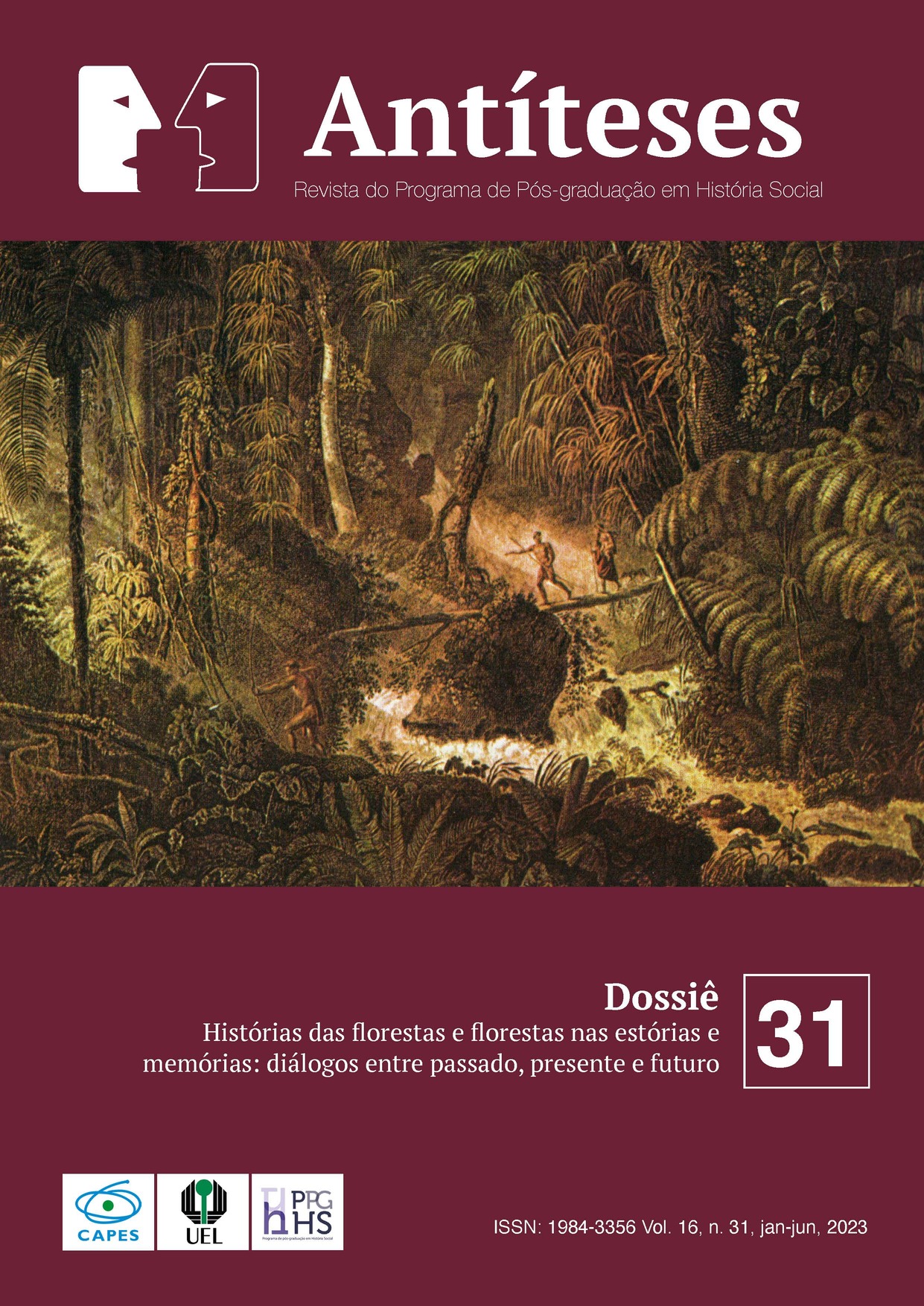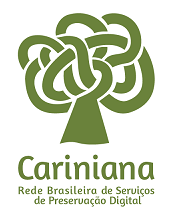Há uma Crise da Verdade?
DOI:
https://doi.org/10.5433/1984-3356.2023v16n31p553-577Palavras-chave:
Ciências Humanas, História das ciências, Negacionismo científicoResumo
O presente trabalho contém uma tradução do artigo de Steven Shapin intitulado Is There a Crisis of Truth?, publicado na revista Los Angeles Review of Books, em dezembro de 2019. A tradução foi realizada em contato com o autor e com a editora da revista supramencionada, Michele Pridmore-Brown. Assim, Shapin gentilmente concedeu-nos um apêndice acerca do artigo, apresentando uma breve atualização sobre a temática, passados quase dois anos da publicação. Buscando a melhor forma de apresentar um artigo que trata de questões demasiadamente atuais, trazemos uma breve biografia do autor, assim como um esforço reflexivo sobre como a "Crise da Verdade" e os negacionismos vêm sendo veiculados e debatidos.
Downloads
Referências
ARONOWITZ, Stanley; AUSCH, Robert. A critique of methodological reason. The Sociological Quarterly, Carbondale, n. 41, p. 699-719, 2000.
BELL, Daniel A. An equal say: where does truth fit into democracy?. The Nation, New York, v. 308, n. 4, p. 27-31, 2019.
BIAGIOLI, Mario. The social status of italian Mathematicians, 1450-1600. History of Science, Cambridge, n. 27, p. 41-95, 1989.
CIÊNCIA, achismos e fake news | Schwarza. [São Paulo]: UOL, 2020. 1 vídeo (2min15). Publicado pelo canal UOL. Disponível em: https://www.youtube.com/watch?v=jIb3BzOTFKU. Acesso em: 19 out. 2021.
COLLINS, Harry; PINCH, Trevor. The construction of the paranormal: nothing unscientific is happening. The Sociological Review Monograph, Malden, n. 27, p. 237-269, 1979.
COLLINS, Harry; PINCH, Trevor. The golem: what you should know about science. Cambridge: Cambridge University Press, 1998.
COMO combater o negacionismo científico?: revista "Balbúrdia" propões caminhos pela educação. Jornal da USP, São Paulo, 1 out. 2021. Disponível em: https://jornal.usp.br/universidade/como-combater-o-negacionismo-cientifico-revista-balburdia-propoe-caminhos-pela-educacao/. Acesso em: 17 out. 2021.
DOMMETT, Katharine; PEARCE, Warren. What do we know about public attitudes towards experts? reviewing survey data in the United Kingdom and European Union. Public Understanding of Science, London, n. 28, p. 669-678, 2019.
EYAL, Gil. The crisis of expertise. Cambridge: Polity, 2019.
FOUCAULT, Michel. Truth and Power in: Power/Knowledge: Selected Interviews & Other Writings 1972-1977. New York: Pantheon, 1980.
GALON, Lucas E. S. Ensaio sobre o fenômeno das fake news. In: SILVA, Adriana; ROSA, Lilian; MOLINA, Sandra (org.). 20 palavras: leituras sobre o agora. São Paulo: Sesc São Paulo, 2020. p. 237-276. Disponível em: https://www.sescsp.org.br/files/artigo/60e6deef/4b9a/41a0/a0a1/4ae2fa9e452c.pdf. Acesso em: 17 out. 2021.
GAUCHAT, Gordon. Politicization of science in the public sphere: a study of public trust in the United States, 1974 to 2010. American Sociological Review, Thousand Oaks, n. 77, p. 167-187, 2012.
GORDIN, Michael. The Pseudoscience wars: Immanuel Velikovsky and the Birth of the Modern Fringe. Chicago: University of Chicago Press, 2012.
HOBBES, Thomas. Leviathan. London: Penguin, 1968.
JOHNSON, Courtney. Most Americans are wary of industry-funded research. Pew Research Center, Washington, 4 oct. 2019. Disponível em: https://www.pewresearch.org/short-reads/2019/10/04/most-americans-are-wary-of-industry-funded-research/. Acesso em: 05 de julho de 2023.
KAKUTANI, Michiko. The death of truth: notes on falsehood in the age of Trump. New York: Tim Duggan Books, 2018.
LATOUR, Bruno. Why has critique run out of steam? from matters of fact to matters of concern. Critical Inquiry, Chicago, v. 30, p. 225-248, 2014.
MARQUES, Ivan da Costa. Ciência e negacionismos: pelo menos um X das questões. Simbiótica, Goiabeiras, v. 8, n. 3, p. 19-38, 2021.
NAPOLITANO, Marcos. Golpe de estado: entre o nome e a coisa. Estudos Avançados, São Paulo, v. 33, p. 397-420, 2019.
ORESKES, N. Why we trust Science? Princeton: Princeton University Press, 2019a.
ORESKES, Naomi. Tanner lectures: why trust science? Princeton: Princeton University Press, 2019b.
ORESKES, Naomi. The scientific consensus on climate change, Science, [Washington], v. 306, n. 5702, p. 1686, 3 dez. 2004.
ORESKES, Naomi; CONWAY, Erik M. Merchants of doubt: how a handful of scientists obscured the truth on issues from tobacco smoke to global warming. Nova Iorque: Bloomsbury, 2010.
ROSENFELD, Sophia. Democracy and truth: a short history. Philadelphia: University of Pennsylvania Press, 2019a.
ROSENFELD, Sophia. Truth and consequences. The Hedgehog Review, Charlottesville, v. 21, n. 2, p. 18-24, 2019b.
SHAPIN, Steven. Is There a Crisis of Truth? LARB: Los Angeles Review of Books. December 2, 2019a. Disponível em: https://lareviewofbooks.org/article/is-there-a-crisis-of-truth/ Acesso em: 05 de julho de 2023.
SHAPIN, Steven. Weber's science as a vocation: a moment in the history of 'is' and 'ought'. Journal of Classical Sociology, [s. l.], n. 19, p. 290-307, 2019b.
SHAPIN, Steven. Invisible science. The Hedgehog Review, Charlottesville, v. 18, n. 3, p. 34-46, 2016.
SHAPIN, Steven. The ivory tower: the history of a figure of speech and its cultural uses. British Journal for the History of Science, Cambridge, n. 45, p. 1-27, 2012a.
SHAPIN, Steven. Catastrophism. London Review of Books, London, v. 34, n. 21, p. 35-38, 8 nov. 2012b.
SHAPIN, Steven. Science and the modern world in: never pure: historical studies of science as if it was made by people with bodies, situated in space, time, and society, and struggling for credibility and authority. Baltimore: The Johns Hopkins University Press, 2010.
SHAPIN, Steven. Science and the modern world: the handbook of science and technology studies. Cambridge: MIT Press, 2007.
TRACINSKI, Robert. Climategate: the fix is Real Clear, [s. l.], 24 nov. 2009. Diponível em: https://www.realclearpolitics.com/articles/2009/11/24/the_fix_is_in_99280.html. Acesso em: 05 de julho de 2023.
VALIM, Patrícia; AVELAR, Alexandre de Sá; BEVERNAGE, Berber. Negacionismo: história, historiografia e perspectivas de pesquisa. Revista Brasileira de História, São Paulo, v. 41, n. 87, p. 14-36, 2021. Disponível em: https://www.scielo.br/j/rbh/i/2021.v41n87/?section=DOSSI%C3%8A%20%E2%80%93%20NEGACIONISMOS%20E%20USOS%20DA%20HIST%C3%93RIA . Acesso em: 15 out. 2021.
WESTMAN, Robert S. The Astronomer's role in the sixteenth century: a preliminary study. History of Science, Cambridge, n. 18, p. 105-147, 1980.
Downloads
Publicado
Como Citar
Edição
Seção
Licença
Copyright (c) 2023 Luiz Cambraia Karat Gouvêa da Silva, Gabriel Kenzo Rodrigues, Francisco Rômulo Monte Ferreira

Este trabalho está licenciado sob uma licença Creative Commons Attribution 4.0 International License.
A Revista Antíteses adota a Licença Creative Commons Attribution 4.0 International, portanto, os direitos autorais relativos aos artigos publicados são do(s) autor (es), que cedem à Revista Antíteses o direito de exclusividade de primeira publicação.
Sob essa licença é possível: Compartilhar - copiar e redistribuir o material em qualquer suporte ou formato. Adaptar - remixar, transformar, e criar a partir do material, atribuindo o devido crédito.
https://creativecommons.org/licenses/by/4.0/












